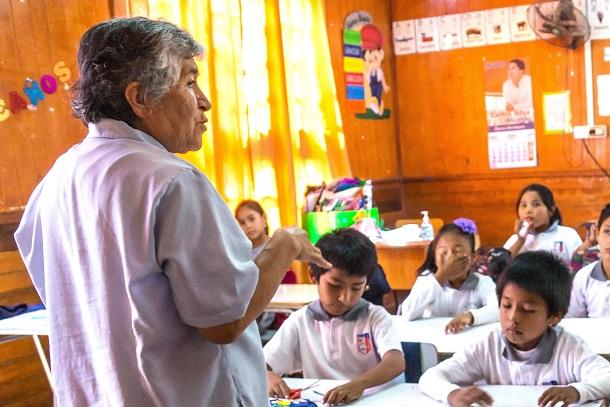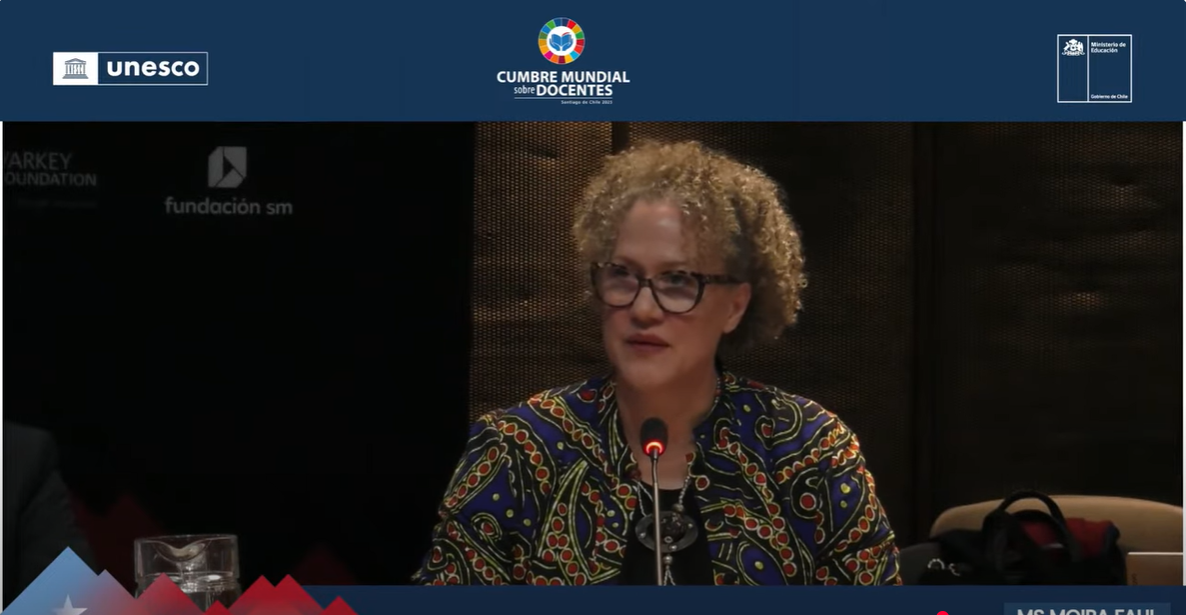Event Highlights: World Summit on Teachers
Thematic sessions C: Group C.2: From crisis to peace: Teachers as agents of change
On the second day, in the second thematic plenary session, Moira Faul invited the participants to think about education and its digitalisation in a context by placing situations into realities of emergencies such as floods, disasters, conflict, famine, and disease. She reiterated the importance of questioning the purpose of evidence and data because data, after being collected, end up in the data packet that only offers a glittering impact, such as quotes and a dashboard. However, the emphasis needs to be on ensuring that the data positively impacts learners and teachers. Therefore, our director urges us to remain vigilant of systematic categories such as gender, disability, age, and ethnicity that make certain groups invisible. Thus, data allows learning, but questioning the purpose of the data is also significant in its processes.
She ended her note on questions that prompt important discussion for teachers, students, and respective stakeholders in education:
- From what sources are data and evidence emerging, and how applicable might these types be in different regions of the world?
- What goals and expectations do teachers hold, and how can we ensure they are supported in fulfilling them?
- In what ways does the teacher–student relationship extend beyond intellect to also encompass the heart?
- How can we design quality education that plays a key role in fostering peaceful societies?
In conclusion, she reminds us that education in crisis and emergencies does not exist in a complete vacuum, but in a relationship that co-exists between humanitarian development and the peace nexus. Thus, education is crucial in taking us from anticipatory action to peaceful resolution in avoiding a humanitarian disaster. It serves as a reminder that systemic solution will build a resilient system in which individuals and society, and schools can flourish.
Read the two-day summary on Moira Faul’s LinkedIn Post


